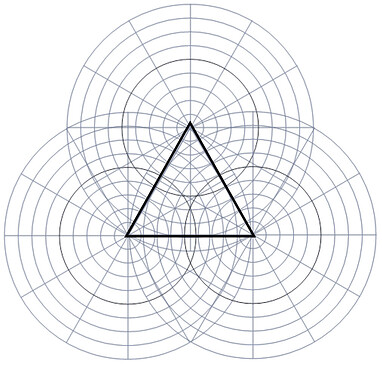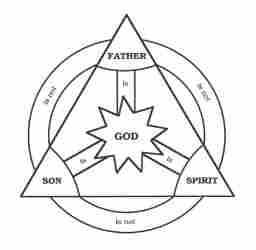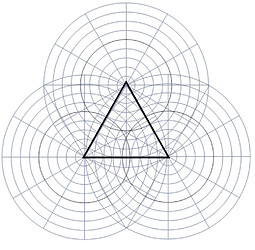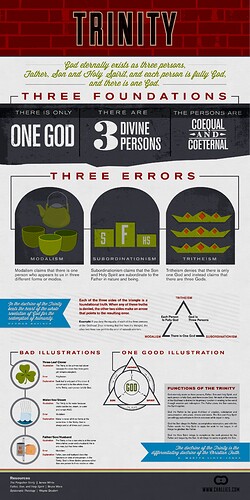- Thanks for the quotes and your labor in posting them. I am happy to see that McGilchrist did, in fact, count First People’s stories among the narratives that are worthy of attention. And I am especially pleased by the stories that you quoted. IMO, they support something that I have increasingly come to believe myself, although my version of the stories differ.
- The Iroquois stories of human origin “fit”, as it were, my explanation: non-humans imparted life and thinking abilities. Gee, that seems similar to:
- Genesis 2:7 Then the Lord God formed the man of dust from the ground, and breathed into his nostrils the breath of life; and the man became a living person"’ and to:
- Genesis 1:26 Then God said, “Let us make mankind in our image, in our likeness, so that they may rule over the fish in the sea and the birds in the sky, over the livestock and all the wild animals, and over all the creatures that move along the ground.”
- Am I stretching the connection between those two narratives, the Iroquois and Genesis? Maybe, maybe not.
^ And where He Who Graspss the Sky With Both Hands warns, before he leaves, “that there are two minds in human beings; and that if they pursue strife, rather than peace, they will end in the place where my brother dwells. And there you will see great suffering, and you will be famished, and you will be without liberty, and you will share the fate of my brother. I have confined him, and I have kindled a fire for him, and for this purpose I used his anger. This fire is hotter than any fire you have ever known; and this fire will burn eternally in that my brother even now desires to control all minds among human beings. ‘Whichever mind you choose, you must obey it’, he says. If mankind forgets, He Grasps the Sky With Both Hands will try to intervene twice on behalf of mankind,…”- Meanwhile, the Jews say that humans have two “Yetzers” [i.e. two impulses or inclinations: a yetzer tov and a yetzer hara. the impulse to do God’s will and the impulse to do evil.]
I see lots of parallels but also some differences as I do with most of the stories from wisdom traditions. I think it helps make it clear that some details in all of them carry the story and imbue the right emotional tone but should not be taken literally.
I think McGilchrist must especially like this story because of the neat fit with his hemisphere hypothesis. Having two minds, or hemispheres at least, in which one of them is attuned to the world as a problem to be solved by our own cleverness and using our accumulated knowledge while the other is attuned to the world as in a relationship where there is mutual concern, it is easy to see why so many traditions posit a struggle in our souls between good and evil. I don’t think the only alternative to remaining mindful of others is doing evil, though that is often a byproduct of myopic self regard.
- The biggest problem, IMO, with the story is that, if the Kabbalah explanation is to be believed: What we would normally call reality, with all it’s truth, beauty, goodness, and lies, ugliness, and evil is just Ein Sof’s imagination, God’s dream, as it were. If so, is there any way to wake Ein Sof up? … and what would happen if IT does?
- I wonder what, if any, impact the following has or will have or would have on McG’s Left Brain/Right Brain Hypothesis: Left brain vs. right brain: fact or fiction?
- The Iroquois myth is kind of amusing, IMO: He Who Grasps The Sky puts his brother, Flint, in a hot fire for the rest of eternity and Flint’s anger is what keeps the fire burning. Bit of Uh-Oh lesson there, eh?
- I’m neither an Iroquoiis nor a Young Earth Creationist, so I don’t and won’t.
I have been trying for days to think how I might reply to the OP. I’m going to try to take an apophatic, or minimalist approach to explain why I don’t seek metaphors to help me understand the idea of the Trinity.
Christians who accept the doctrine of the Trinity use a very few things to help us. We have the biblical texts that it’s derived from, mind-bending doctrinal statements that try to pull all of that together, and sometimes “graphic organizers” – certainly not portraits – like the ones below to help remind us of the words we rely on.

We understand that God is completely other, different from us or anything else we know. So we stick to the information and metaphors we’ve been given through our scriptures. This means that we tend to treat other ideas about God apophatically – as telling us what God is not. In comparing a new metaphor against what we believe, we tend to look at the ways in which the metaphor falls short.
This way of thinking must seem terribly constricted, when one has a more open view of who or what God is and how one comes to know. But our understanding of who God is, is foundational to our faith. Bedrock. Many Christians are able to consider and talk about God/god as different from what they believe God to be and have placed their faith in. But these are two entirely different ways of thinking – reflecting the difference between a theological conference of academics, and a prayer meeting.
Viva la difference. It is hard for me to imagine how sticking to a script aids understanding but of course it doesn’t have to work for me. Thanks for the explanation.
It does strike me that quite a few here do aim for the theological academic level.
I guess you can worship God without worrying about His physical nature. Biblically God is identified by what he does and by who He is associated with:
The God of Abraham, Issac an Jacob wo brought the Israelites out of Egypt.
Perhaps we do not need to delve any further?
Richard
That is indeed the narrative, and it is a unifying one for people looking for a national narrative, but whether it is historically true is the question I’m delving into with the thread I started.
- The Ancient Order of Pythagoreans has approved my sharing the following “Three Body” diagram with you. As a bonus, I’m sharing a hard-shell Calvinist view of the Trinity (a la Herman Bavinck):
Yep definitely a Modalist. Aside from our betters declaring it off limits or mistaken I wonder if there is anything else wrong about it.
- Which “it”?
It standing for Modalism.
- You’re asking the wrong person. I’ve come to the point, not so long ago, that–barring any future revelation to the contrary, I have a hard time thinking that any of the Persons is going to beat up on me if I don’t get the explanation of the Trinity just right.
I just googled to find out how Catholicism regards Modalism which led me to the realization that my ‘heresy’ isn’t so much about modes as is it is about the adequacy of personhood to describe God. There are good reasons why I am no Christian.
This is what I found:
This analogy commits the heresy of modalism. Modalism is the false belief that God is one person who has revealed himself in three forms or modes. Modalism is also called Sabellianism after Sabellius, an ancient theologian whom Pope Callixtus I excommunicated in A.D. 220.Mar 1,
I presume that should be “Pythagoreans”.
- Brilliant presumption, Watson. Thanks!
- Now, in that picture, what do you see?
I recall a long and vigorous debate one day over whether there’s a better word than “Person” for translating the original Greek word into English. Our conclusion was that English is sadly lacking in words for some profound concepts.
You mean this?

I see that it is inadequate: what appear as three circles are actually just a single circle.
- Yes, I mean that.
- LOl!! You’re too quick to dismiss what you haven’t recognized.
The whole point about modalism is that it places God in one form rather than three at the same time. So the ice, water, steam analogy is modal because at any one time only one form is possible.
The whole point about father, son and mechanic is that you can be all three at once.
Strictly speaking the Trinity limits God to just the Father, Son and Holy Spirit, so the Phone analogy fas because there are more than three functions. However, it would be naive to think that we have seen all of God, and, just as (our view of) the Trinity was not possible before the advent of Christ, we might not be aware of aspects that are beyond our vision or comprehension.
As I see it the Trinity was an attempt to rectify the apparent paradox of God being on earth as Jesus while still in Heaven as the Father. The aspect of the Holy Spirit is to allow God to empower us with His abilities.
It has no real beneficial value to living or worship and can even confuse the issue of prayer because of the language involved.- are we praying to Christ or through Him?
Richard


